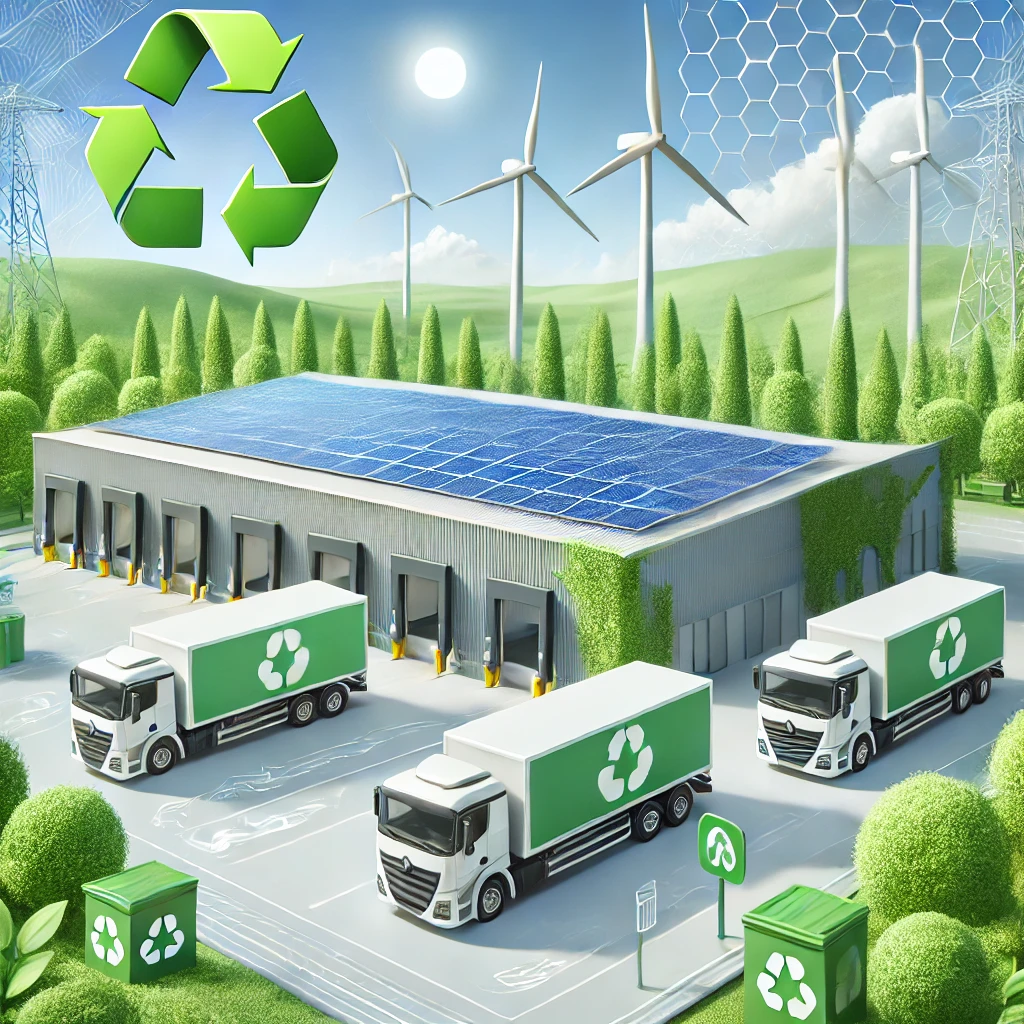Introduction: The logistics industry plays a crucial role in global supply chains, but it is also a significant contributor to environmental impact. As the world increasingly focuses on sustainability, the role of Third-Party Logistics (3PL) providers in reducing carbon footprints has become a key area of interest. This article explores the importance of sustainability in logistics, the green practices adopted by 3PL providers, case studies of sustainable 3PL solutions, and the future of sustainability in the industry.
The Importance of Sustainability in Logistics: Sustainability in logistics is no longer a choice but a necessity. The logistics sector, including transportation, warehousing, and distribution, contributes to a large portion of global greenhouse gas emissions. With rising consumer demand for environmentally friendly products and services, businesses are under pressure to adopt sustainable practices across their supply chains. 3PL providers, being integral to the logistics ecosystem, have a significant role in helping companies achieve their sustainability goals.
Environmental regulations are becoming stricter, with governments and international bodies setting ambitious targets for carbon neutrality. Companies that fail to comply with these regulations risk facing penalties and losing market share to more sustainable competitors. Moreover, adopting sustainable logistics practices can lead to cost savings through improved efficiency, reduced waste, and lower energy consumption.
Green Practices Adopted by 3PL Providers: 3PL providers are increasingly implementing green practices to reduce their environmental impact. Some of the key initiatives include:
- Optimizing Transportation Routes:
- Using advanced route planning software to minimize fuel consumption and reduce emissions.
- Collaborating with shippers to consolidate shipments, reducing the number of trips needed.
- Investing in Energy-Efficient Vehicles:
- Transitioning to electric and hybrid vehicles in their fleets.
- Exploring alternative fuels such as biodiesel and hydrogen.
- Sustainable Warehousing:
- Implementing energy-efficient lighting, heating, and cooling systems.
- Utilizing solar panels and other renewable energy sources to power warehouses.
- Designing warehouses with green building standards like LEED (Leadership in Energy and Environmental Design).
- Reducing Packaging Waste:
- Encouraging the use of recyclable and biodegradable packaging materials.
- Adopting reusable packaging solutions to minimize waste.
- Implementing Reverse Logistics:
- Managing returns and recycling programs to reduce waste and promote the circular economy.
Case Studies of Sustainable 3PL Solutions: Several 3PL providers have set industry benchmarks by implementing innovative sustainable solutions. Here are a few examples:
- DHL Supply Chain: DHL has committed to achieving zero emissions by 2050 through its GoGreen initiative. The company is investing in electric vehicles, sustainable aviation fuel, and green warehousing practices. DHL’s “green logistics” services help customers reduce their carbon footprints by offering carbon-neutral shipping options.
- XPO Logistics: XPO has made significant strides in reducing its environmental impact by optimizing its transportation network and investing in energy-efficient technologies. The company has implemented a smart transportation management system that reduces empty miles and fuel consumption.
- Kuehne + Nagel: Kuehne + Nagel’s Net Zero Carbon program aims to eliminate carbon emissions across its supply chain by 2030. The company has introduced CO2-neutral supply chain solutions and actively promotes the use of sustainable energy in its operations.
The Future of Sustainability in 3PL: The future of sustainability in 3PL is promising, with continuous advancements in technology and increasing awareness of environmental issues. The following trends are expected to shape the future:
- Increased Adoption of Electric and Autonomous Vehicles: As technology advances, 3PL providers are likely to adopt electric and autonomous vehicles on a larger scale, further reducing emissions and improving efficiency.
- AI and IoT Integration: The integration of Artificial Intelligence (AI) and the Internet of Things (IoT) in logistics operations will enable more precise monitoring and optimization of supply chains, leading to reduced energy consumption and waste.
- Collaboration and Partnerships: 3PL providers will increasingly collaborate with customers, suppliers, and other stakeholders to develop and implement sustainable practices across the entire supply chain.
- Regulatory Pressures and Consumer Demand: As environmental regulations become more stringent and consumers demand greener options, 3PL providers will need to continue innovating and adopting sustainable practices to remain competitive.
Conclusion: Sustainability in 3PL is no longer just a trend; it is a critical component of the logistics industry’s future. By adopting green practices and investing in sustainable innovations, 3PL providers are not only reducing their environmental impact but also positioning themselves as leaders in the industry. As the world moves towards a more sustainable future, the role of 3PL providers in achieving global sustainability goals will continue to grow in importance.
